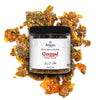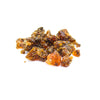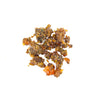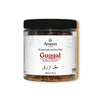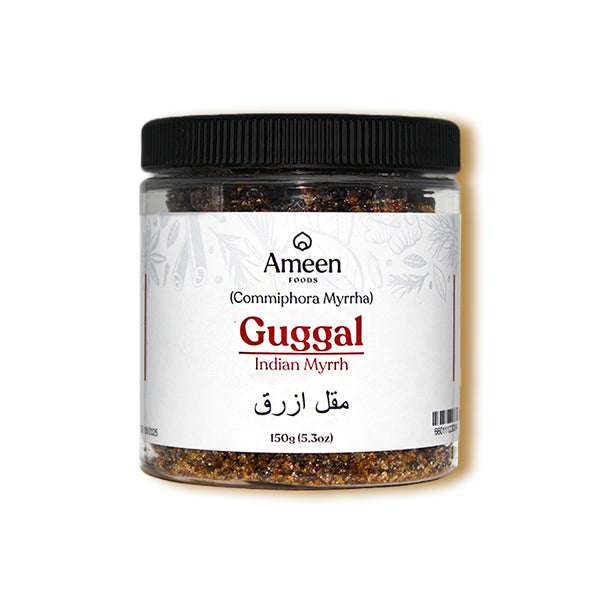Guggul Gum, scientifically known as Commiphora mukul, is a fragrant resin harvested from the small thorny Guggul tree, native to the arid landscapes of India, Pakistan, and Bangladesh. Deeply woven into Ayurvedic heritage, this golden-brown resin has been cherished for centuries in traditional wellness rituals and herbal formulations.
Culinary & Wellness Appeal of Guggul Gum
Though not a common culinary spice, Guggul Gum offers a uniquely earthy, slightly bitter taste with warm, aromatic undertones. In herbal traditions, it is used to create infusions, tinctures, and decoctions, often combined with other botanicals for a synergistic effect. Its resinous nature also makes it ideal for use in topical pastes and Ayurvedic salves.
Why Choose Guggul Gum?
-
Flavor Profile: Bitter, earthy, and aromatic—best used in teas and infusions.
-
Traditional Uses:
-
Herbal Teas: Brewed for warm, grounding teas.
-
Tinctures & Decoctions: Common in Ayurvedic blends for holistic wellness.
-
Topical Pastes: Traditionally applied to skin in Ayurvedic care.
-
-
Aromatic Resin: Naturally fragrant, Guggul lends depth to spiritual and wellness practices.
Botanical and Cultural Significance
-
Botanical Name: Commiphora mukul
-
Common Names:
-
English: Guggul Gum, Bdellium Gum, Guggul Resin, Mukul Myrrh
-
Sanskrit: Guggulu (गुग्गुलु)
-
Hindi: गुग्गुल, गुग्गल
-
Urdu: گوگل
-
Other: Indian Bdellium, Guggul Lipid, Balsamodendron Mukul, Guggal, Gokul Tree
-
Discover the Power of Guggul Gum
Whether incorporated into herbal preparations or used in traditional salves, Guggul Gum is a timeless natural resin valued across generations. Bring a piece of Ayurvedic legacy into your modern wellness routine with this sacred botanical.

